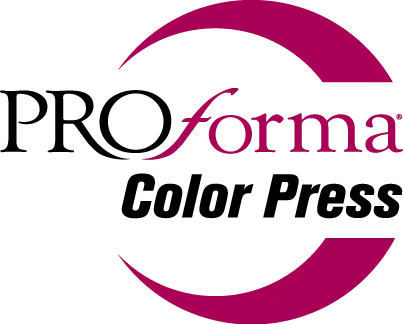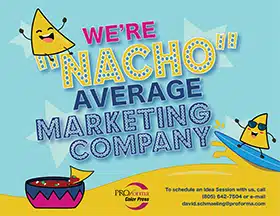Promotional Products, But Make Them Plantable
- Updated on: 2023-03-29
- Read original article here

The Cancer Treatment Centers of America came to Symphony Seed Papers (asi/74930) with an issue. The national network of cancer care centers had cleaned up its prayer wall and was left with two large boxes of handwritten prayers. They couldn’t just throw away these sentimental, valuable prayers, so Lauri Felson, founder of the Santa Fe-based seed paper promo product company, proposed an idea: Turn the prayers into seed paper doves that could then be planted.
“I swear I was crying half the time because they were just beautiful prayers,” Felson says. “We took those prayers and turned them into a pulpy mixture, then we made seed paper with forget-me-not seeds inside of it. We put flower petals in the paper, and then we turned them into doves. When you planted them, they grew forget-me-not flowers.”
This example just grazes the surface of what can be done when you mix the idea of sustainable promotional products with seed paper. In fact, from visors to pinwheels to dollar bills to “for sale” signs, Symphony Seed Papers can make just about any promo product idea sustainable.
Symphony Seed Papers can create products like air fresheners, visors and fans from fully biodegradable seed paper.
With sustainability increasingly becoming top of mind, plantable promo products have grown in popularity. A number of suppliers offer custom seed paper, including Colorado-based Bloomin Promotions (asi/40646) and Canadian, female-owned Botanical PaperWorks (asi/41273). Coupons, journals, business cards, wedding invitations, confetti, coasters and more can be made abundantly more sustainable by creating them using seed paper.
But seed paper isn’t the only product that can be planted. In 2013, a group of MIT robotics students created the first-ever plantable pencil and put the idea on Kickstarter to receive funding. Enchanted by the thought of a biodegradable pencil – with an attached seed capsule that could be planted when it became too small to write – Michael Stausholm brought the rights to the product and patented it as the Sprout pencil.
Stausholm’s company, Boston-based Sprout USA (asi/88893), has sold over 45 million Sprout pencils across 80 countries.
Sprout USA offers what it calls the world’s only plantable pencil.
“It’s a sustainable messenger,” Stausholm says. “People call it an icebreaker, because if you give someone a plastic pen with your logo, we’ve seen that many times it goes into a drawer, right? But if you give them a Sprout pencil, you can start a conversation about how to use it, what to do afterwards and sustainability.”
Plantable pencils, seed paper innovations and even traditional planters aren’t just about making unusual creations and celebrating plants. They’re about sustainability and reducing the carbon footprint of the $23.2 billion promo product industry.
Before plantable promo became such a commodity, Felson recalls having to educate people on the product’s recycling aspects when she first came into the industry in 1995.
“I would say no, it’s not about planting. It’s about recycling,” Felson says. “It’s about taking that postcard that you get in the mail, giving it back to the earth and putting it in soil instead of throwing it away.”
Many plantable promo product suppliers, including Botanical Paperworks, Sprout and Symphony Seed Papers, also locally source their materials and produce regionally where they sell, helping to alleviate supply chain stressors. Ultimately, the suppliers say, these products improve the entire supply chain by reducing energy use and the amount of harmful gases contributing to climate change.
Green promo has also proven to be a profitable move, pushing many businesses to start implementing sustainability efforts. Global consumers are aware that climate change will affect them and are likely to buy from brands aligned with their values. Gen Z shoppers, in particular, prefer to buy sustainable brands and are willing to spend 10% more on sustainable products, according to a study from First Insight.
“It’s a demand that’s getting stronger and stronger from consumers especially,” Stausholm says. “But now it’s also coming from corporations and companies demanding that their suppliers, their partners, and so on, actually care about and document what they’re doing in terms of sustainability.”
Demand for plantable promos extends to a wide range of sectors, including nongovernmental organizations (NGOs), banks, hotels and healthcare facilities. The products aren’t just for “Save the Bees” or Earth Day campaigns either.
Sprout has worked with companies like IKEA, Disney, Porsche and Bank of America, all wanting to communicate sustainability and get their message on its pencils. Airlines, hotels and amusement parks have been replacing pens with Sprout pencils, and Michelle Obama even used Sprout pencils as part of the merchandise for her Becomingbook tour.
Felson, whose company has worked with T Mobile, Volkswagen, NBC, Clinique, Warner Music, and even created Ellen DeGeneres’ Christmas cards, says the market for green promo items is everywhere.
The trend toward sustainable products is expanding into a variety of industries. Sprout, for example, recently dove into the beauty market, launching an eyeliner that, like its pencil, is plantable.
Sprout created this plantable, biodegradable eyeliner. When planted, the liner’s capsule grows wildflowers.
“It’s not limited anymore to anyone,” Felson says of plantable promos. “It seems like everyone can use something that’s environmentally friendly.”
Images Powered by 


